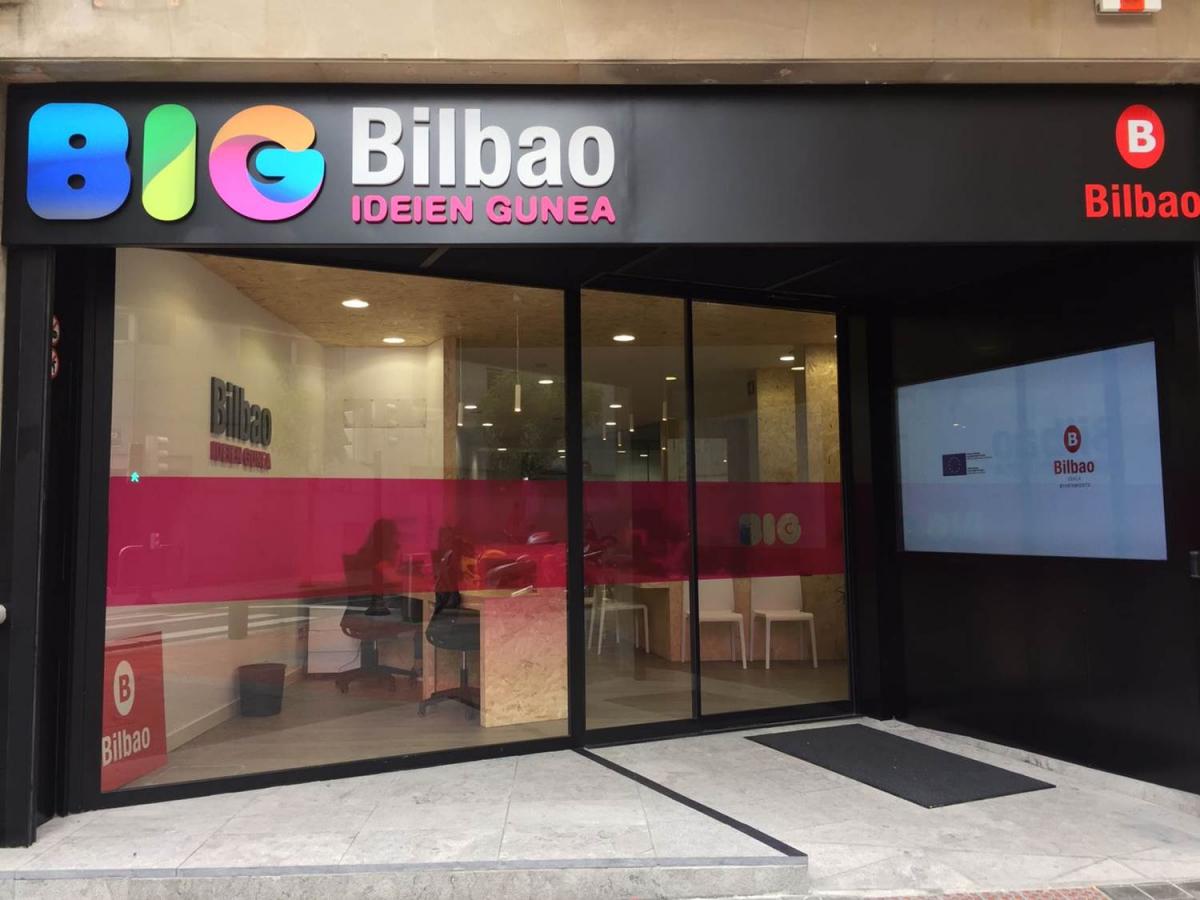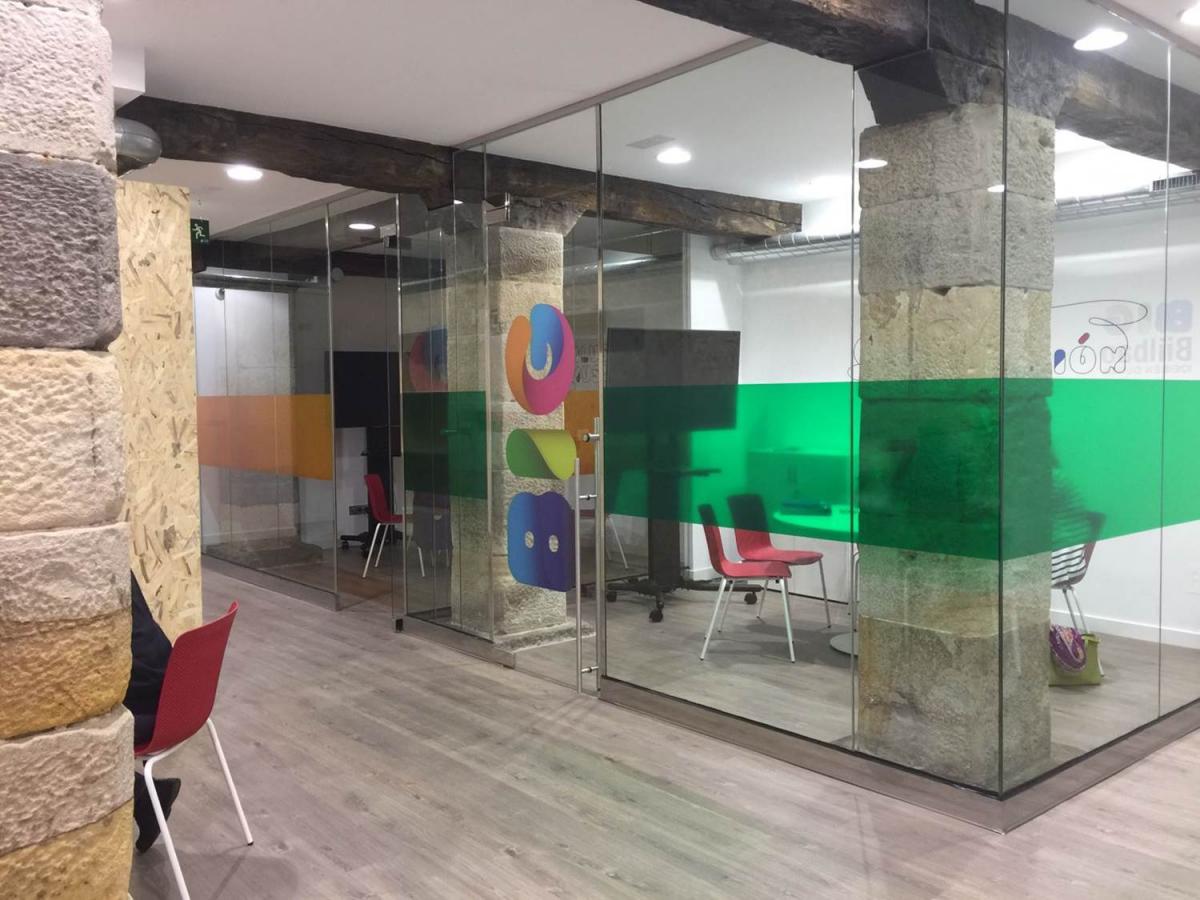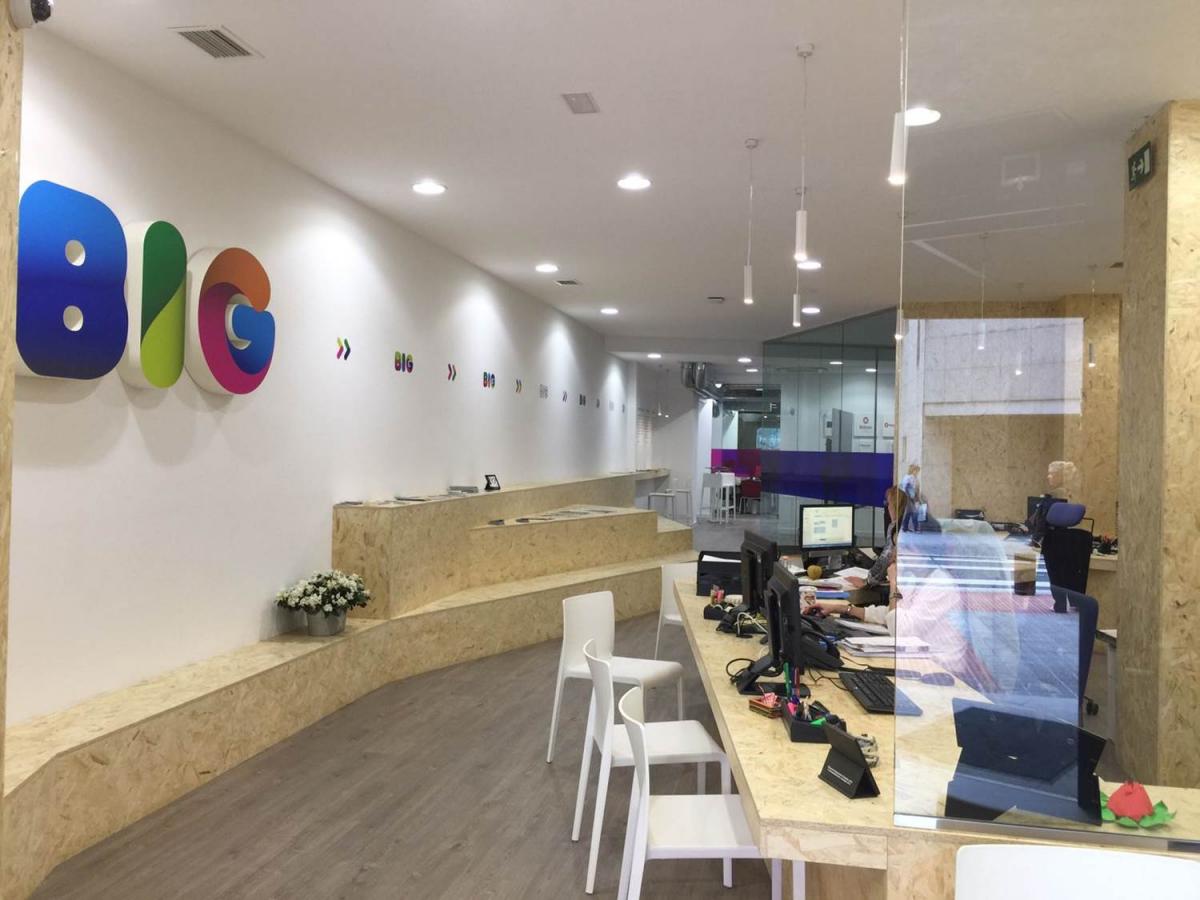Strengthening Entrepreneurial Ecosystems in Southern European Cities: BIG Bilbao
Three Questions with Natalia Saiz Gonzalez
Natalia Saiz Gonzalez, head of Entrepreneurship and Support to Medium and Small Businesses at Bilbao International, is one of the METROS participants involved in the development and creation of BIG Bilbao.
The city of Bilbao, Spain, recently inaugurated BIG Bilbao (Bilbao Ideien Gunea), an innovative entrepreneurship hub downtown as part of a broader effort to support entrepreneurs, startups, and small businesses in the city and region. This project was one of the core elements that the Bilbao delegation worked on as part of their involvement with GMF’s METROS (Strengthening Entrepreneurial Ecosystems in Southern European METRO Regions) peer-to-peer learning on regional economic development in Southern European cities between 2014 and 2016 (read more about the METROS project here). In the first of six workshops, the METROS cities collectively determined to focus their peer learning efforts on strengthening local entrepreneurial and innovation ecosystems in an effort to generate new economic activity and provide opportunities for their residents in a challenging economic and fiscal climate.
Q: Why was it important for Bilbao Ekintza to open a physical center for entrepreneurship in Bilbao? How does the city's international strategy relate to the work that you're doing locally on entrepreneurship? How connected are the international and entrepreneurial agendas?
Natalia Saiz Gonzalez: For the city of Bilbao it is very important to support the entrepreneurs of the city in order to contribute to job creation and the generation of economic activity in Bilbao. Also, we have a growing entrepreneurial ecosystem in the city and in the Bizkaia region. BIG Bilbao is important because it aspires to be the place that brings together all of the information that new entrepreneurs need to make their ideas become a reality. We offer a growing number of services at the center, provided directly on site or through the Bilbao International staff, and there will be other services developed to which entrepreneurs will be directed if they need specific support. BIG Bilbao is also important because it exemplifies the added value of public-private cooperation in the area for all the actors in the ecosystem The supporting partners include the European Social Fund, Basque government, Bizkaia provincial administration, three universities based in Bilbao (University of Deusto, Mondragon University, and University of the Basque Country), financial institutions (Kutxabank and Elkargi SGR), and private companies in the technology and communications sectors (HP, Microsoft, and Telefonica).
Bilbao’s international strategy is a very important aspect. From the international relations department we coordinate and welcome an enormous number of delegations from abroad, and many of them want to see the economic and entrepreneurial ecosystems of specific sectors. Therefore there is a strong link with the international relations agenda since we need to be making the connections among local companies, entrepreneurs, and international actors. Almost always these international delegations end up meeting with representatives of the local business ecosystem.
Q: You are offering services to entrepreneurs, but also playing a role of coordinating across the various actors in the ecosystem; how are you communicating and interacting with these other actors? Is it through projects that the companies have? Is it through policy conversations? How are you helping to coordinate the ecosystem?
Natalia Saiz Gonzalez: In several ways — there is coordination on a higher level between the respective heads of Bilbao International and the city leadership with the strategic partners of BIG Bilbao, but then also on a technical level each person working at BIG is responsible for one of the agreements signed with each of the BIG partners. This member of staff is continually coordinating activities with their counterparts in partner organizations and private companies to develop programs to support the entrepreneurs. We also have regular internal coordination meetings and every time a new program is launched we communicate more broadly about it. We are currently working on finalizing the BIG Bilbao website where all partners and programs will be represented. Overall, the interaction with the partners and other stakeholders is continuous and responds to the changing needs of entrepreneurs and current partner projects or programs.
Q: Can you give me one or several examples of something you or the Bilbao team learned through the METROS project, either from the other cities or from the U.S. perspective, that influenced your approach to the BIG Bilbao project?
Natalia Saiz Gonzalez: There is one very important thing that we learned through the METROS project with regard to BIG Bilbao. That lesson is to include entrepreneurs and SMEs in the early stages of design of the center and its services. We have always listened to the needs of these groups, but having them actually participate in the processes of design was tremendously valuable. They add value in the design, planning, and implementation of the services and programs. This was a key point emphasized by GMF as well as several of the external experts that we were connected to through the METROS process. To this day the experts and networks we were exposed to and connected with in the various METROS workshops continue to be a source of insight, ideas, and inspiration. This is especially true since these workshops represented an opportunity to engage with them and reflect in a constructive context, separated from our daily professional tasks and obligations.
Read the full METROS Impact Report here »



